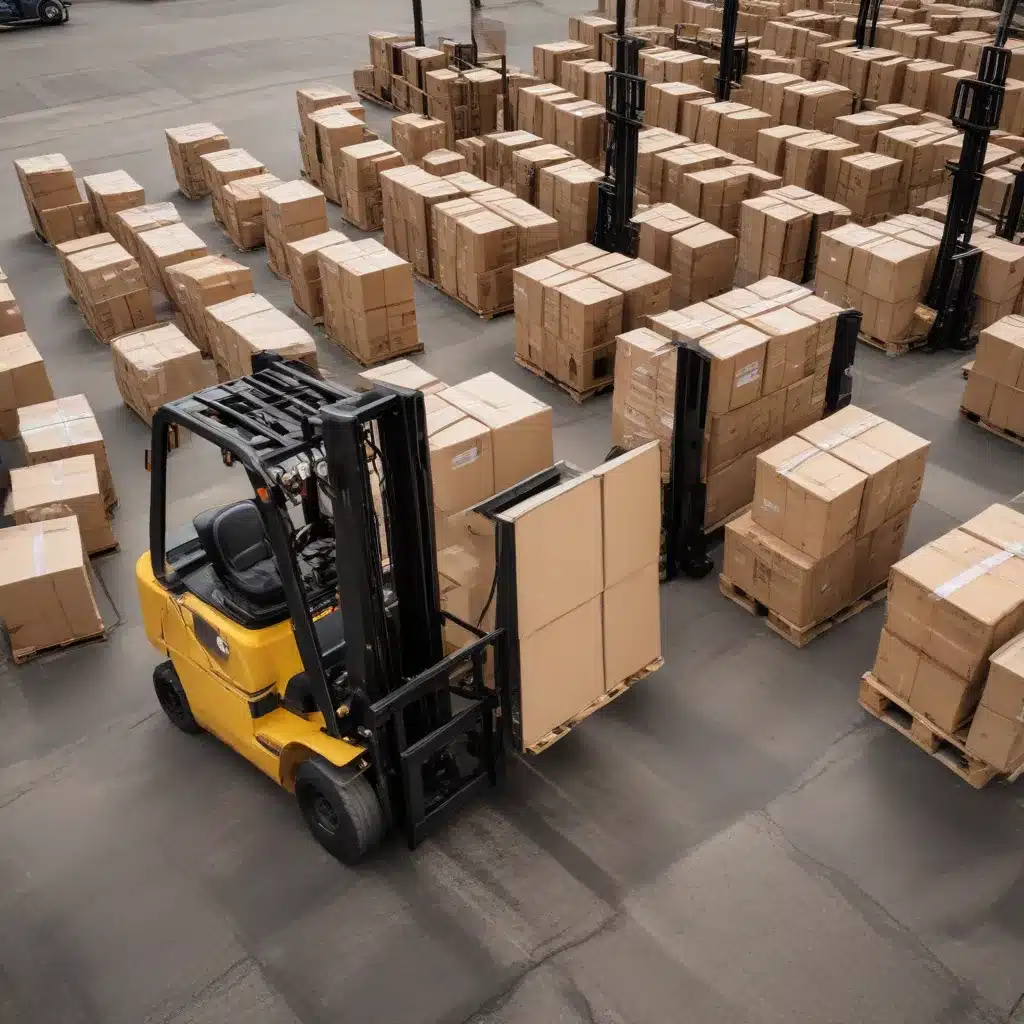
Navigating the Unpredictable: Building Resilient Forklift Fleets
In the dynamic world of logistics and warehousing, forklift fleets serve as the backbone of operations, keeping the gears of commerce turning even in the face of unexpected challenges. As the industry navigates the ever-changing landscape, the need for forklift fleet resiliency has never been more paramount.
From supply chain disruptions to shifting market demands, today’s forklift operators and fleet managers must be equipped with the knowledge and strategies to adapt and thrive. This comprehensive guide will delve into the critical aspects of building resilient forklift fleets, empowering you with practical tips, industry insights, and innovative solutions to weather any storm.
Understanding Supply Chain Resilience
At the heart of forklift fleet resiliency lies the concept of supply chain resilience – the ability of an organization’s supply chain to adapt and transform in the face of change. The COVID-19 pandemic served as a stark reminder of the importance of this concept, as suppliers worldwide were forced to rapidly pivot in response to unprecedented disruptions.
Businesses that had invested in new technologies and proactively developed supply chain resilience strategies were better equipped to weather the storm. They could leverage tools like the industrial internet of things (IIoT), artificial intelligence, and autonomous robots to enhance their adaptability and flexibility.
For forklift fleets, embracing emerging technologies can be a game-changer. By integrating features like battery management systems (BMS) and telematics, fleet managers can gain valuable data insights to predict and prevent maintenance issues, ensuring their operations remain efficient and resilient.
Lithium-ion Batteries: A Resilience Powerhouse
One of the most impactful technologies for building resilient forklift fleets is the adoption of lithium-ion batteries. These high-tech power sources offer a wealth of benefits that can significantly boost a facility’s supply chain resilience.
Predictive Maintenance and Longer Run Times
Lithium-ion batteries come equipped with sophisticated battery management systems (BMS) that can be paired with telematics. This powerful combination provides fleet managers with real-time data on the status and health of their forklift batteries. By leveraging this information, they can anticipate and address maintenance needs before they become disruptive, minimizing downtime and ensuring uninterrupted operations.
Lithium-ion batteries also boast longer run times compared to traditional lead-acid alternatives. This means that forklift operators can work through multiple shifts without having to worry about frequent recharging, further enhancing the resilience of the fleet.
Opportunity Charging for Maximum Uptime
Another key advantage of lithium-ion batteries is their ability to support opportunity charging. This practice involves charging the batteries for short periods throughout the day, rather than relying on a single, prolonged charging session. This approach helps maintain a consistent state of charge, reducing the risk of unexpected battery-related disruptions and ensuring maximum uptime for the forklift fleet.
Adaptability and Flexibility
Lithium-ion technology inherently provides the adaptability and flexibility that warehouses and logistics operations require to build resilience. These batteries can withstand the demands of harsh environments, rapidly changing operational needs, and even unexpected supply chain disruptions. By embracing lithium-ion, forklift fleets can become more agile and responsive, better equipped to navigate the unpredictable landscape.
Diversifying Supply Chains for Resilience
As the global supply chain landscape continues to evolve, forklift fleet managers must also consider the importance of diversifying their supply sources. The retail industry has demonstrated a shift towards this strategy, as businesses seek to minimize the risks associated with relying on a single global supplier.
By balancing imports from China and Mexico, for example, retailers are creating more resilient supply chains. Chinese imports help maintain inventory stability during periods of high demand, while Mexican imports provide a quicker, more flexible option to avoid potential disruptions.
Forklift fleet managers can apply a similar approach, exploring alternative suppliers, manufacturers, and service providers to build a diverse network. This diversification not only reduces the risk of being caught in a single point of failure but also enables greater adaptability and responsiveness when faced with unforeseen challenges.
Embracing Proactive Planning and Preparedness
In an era of increasingly frequent supply chain disruptions, proactive planning and preparedness are essential for forklift fleet resilience. Fleet managers must stay attuned to industry trends, emerging technologies, and changing consumer demands to anticipate and respond to potential challenges.
One example of this proactive approach is the retail industry’s shift towards earlier restocking and building extra inventory. By restocking earlier and holding more stock, retailers are preparing for the unexpected, especially during the high-stakes holiday season. This strategy helps them mitigate the impact of potential disruptions and ensure they can meet customer demand.
Forklift fleet managers can apply a similar mindset, maintaining a larger inventory of critical spare parts and accessories. This “cushion” can help them quickly address any equipment issues or supply chain bottlenecks, minimizing downtime and maintaining operational continuity.
Fostering a Culture of Adaptability
Resilience is not just about technological solutions; it also requires a shift in the organizational culture. Forklift fleet managers must cultivate a mindset of adaptability and flexibility within their teams.
This includes empowering employees to be proactive problem-solvers, encouraging cross-training to enhance versatility, and fostering open communication channels. When frontline workers and fleet management collaborate closely, they can more quickly identify and respond to emerging challenges, implementing innovative solutions to maintain operational efficiency.
By investing in their people and nurturing a culture of resilience, forklift fleet managers can ensure that their operations remain agile and responsive, regardless of the industry’s twists and turns.
Conclusion: Embracing the Future of Forklift Fleet Resilience
In the ever-evolving world of logistics and warehousing, forklift fleet resilience is not just a nice-to-have – it’s a necessity. By embracing emerging technologies, diversifying supply chains, and cultivating a culture of adaptability, forklift fleet managers can position their operations for long-term success.
As the industry continues to navigate the unpredictable, those who are willing to adapt and innovate will be the ones who thrive. The team at Forklift Reviews is committed to providing the latest insights, practical tips, and industry-leading expertise to help you build resilient forklift fleets that can weather any storm.

